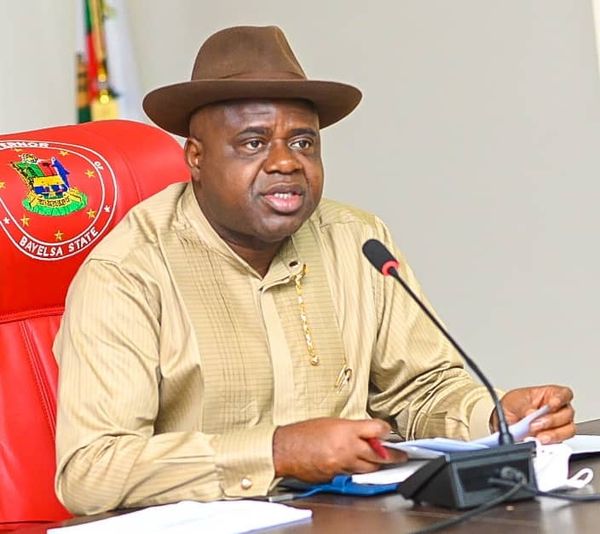Niger Delta
Floods: Bayelsa Lauds UNICEF Over Donation Of Health Relief Materials

The Bayelsa State Government has commended the United Nations Children Fund (UNICEF) for donating no fewer than N56million worth of health-related relief materials to cushion impact of the 2022 floods in the State.
The State Commissioner for Health, Dr Pabara Newton Igwele gave the commendations at the State Secretariat Complex in Yenagoa during the presentation of the UNICEF’s relief materials to the state by the UNICEF’s head of the Port Harcourt field office, Dr Anslem Audu.
He noted that the donations where more needed even as the state grapples with the shortage of health related instruments needed in the hospitals across the state, following the damage caused by the ravaging floods in health infrastructure in flood impacted areas of the state.
Earlier during the presentation, the Head Port Harcourt Field office of UNICEF, had stated that the UN’s Children fund was making the donations to the state following available data which specifies the state as the worst hit by the ravaging floods amongst affected states within its Port Harcourt field office.
He noted that following the height of the devastating floods, UNICEF has not only deemed it fit in partnering the state to amiliorate its health effects on children and other citizens of the state, but also found it necessary to support the state through the provision of anti-malaria and typhoid drugs as well as other pharmaceuticals.
Audu reiterated that UNICEF also knew the floods have adverse consequences on the living standards of the citizens and has therefore also included, other relief materials, such as diapers for children and vulnerable adults, foot wears(rubber slippers), mattresses, sanitary pads, amongst others to donations it made to the state.
“UNICEF knew that there would be post flood health challenges and illnesses, so we’ve donated anti-malaria, antibiotics, diarrhoea, and other drugs to the state. But we also have added other relief materials, such as rubber foot wears, diapers and sanitary pads to the donations.
“The sum total of the donations made by UNICEF to Bayelsa State is about N56million, including amount spent on logistics. Would not end with these items alone. would partner the state in the area of post-flood modalities towards mitigating the impact of the floods on victims across the state.
“We’ve four states in our Port Harcourt area office. They’re Bayelsa, Rivers, Akwa Ibom and Delta states. The relief materials we donated today include, drugs, foot wears, insecticide treated nets, detergents, soaps and toiletries, as well as sanitary wears, amongst bothers”, UNICEF said.
Receiving the donations onbehalf of the state government, the state Commissioner for Health, Dr Pabara Newton Igwele lauded UNICEF for their gesture.
Igwele noted that the Unicef was the first international body to have made donations to help the state mitigate the impact of the flood, this was even as he restated the state’s continuous resolve to partner the UN children fund.
The Commissioner who also thanked Unicef for their post-flood plan which is aimed at further supporting the state reiterated that the floods have dealt severely with the state and its citizens, describing the UN Children fund as a worthy and progressive partner.
“Even as we try to manage ourselves as Bayelsans in government positions, I could imagine what this flood has caused to the lives of those who don’t have any tangible means of survival.
“Imagine what the floods have caused the state, our health facilities. Imagine the plights of children and vulnerable students, who would be struggling to safe their lives and learning materials. I thank Unicef for this gesture. You’re the first international body to have made donations of this magnitude to help the state cushion the impact of the floods”, the Commissioner said.
By: Ariwera Ibibo-Howells, Yenagoa
Niger Delta
Eno Recommits To Private Sector Investments
Niger Delta
Delta Prioritises Primary Healthcare Over Flyover Projects
Niger Delta
C’River Assembly Seeks Crackdown On Drug Abuse
-

 Politics2 days ago
Politics2 days agoAPC Releases Adjusted Timetable For Nationwide Congresses, Convention
-

 Business2 days ago
Business2 days agoCustoms Seek Support To Curb Smuggling In Ogun
-
Sports2 days ago
DG NIS Wants NSC Board Constituted, Seeks Increased In Funding
-
News2 days ago
Police Bust Kidnapping Syndicate In PH
-

 Sports2 days ago
Sports2 days agoSWAN Rivers Set-up Five Functional Committees
-
Sports2 days ago
NSC Disburses N200m Training Grants To 26 Athletes
-
Sports2 days ago
Falcon Players Prepare For Title Defense
-
Sports2 days ago
‘NTF Will Build On Davis Cup Success For Brighter Future’

